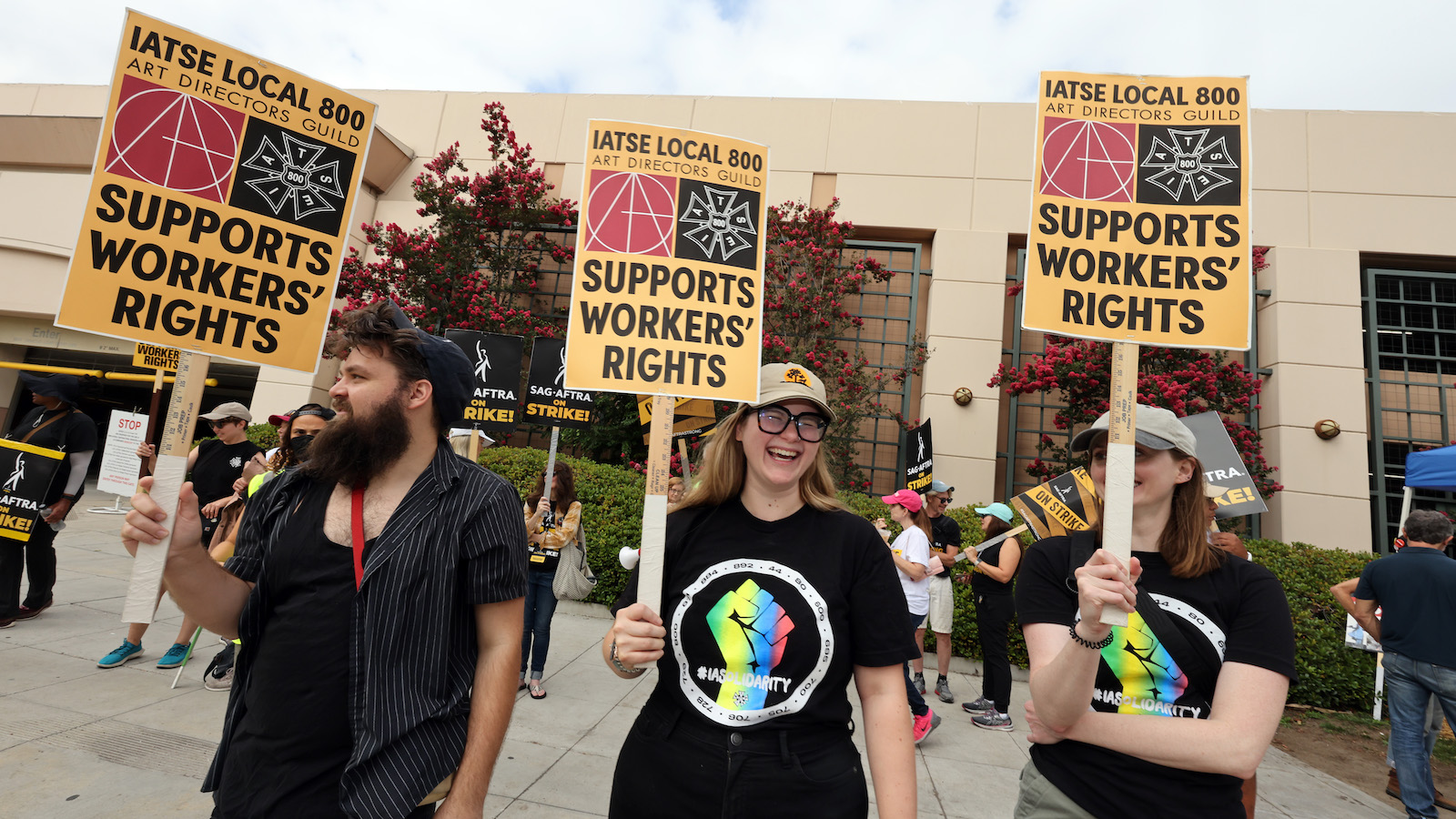What to do about (or perhaps, with?) generative AI has plagued every Hollywood labor union for more than a year now. IATSE‘s solution just might be the best yet.
For the international Alliance of Theatrical Stage Employees, generative AI will be covered union work performed by a human and no crew member can be forced to input a prompt that would replace another crew member. Additionally, the tentative agreement calls for studios to commit to AI training and to protections against potential lawsuits over an IATSE worker’s use of AI.
The full Memorandum of Agreement was released to IATSE members on Wednesday afternoon. It wasn’t hard to get. As an attorney told IndieWire, IATSE’s deal is perhaps more detailed and comprehensive than the others — and it is a “really great result” for both employees and employers.
“They definitely evolved,” Ivy Kagan Bierman, a partner at Loeb & Loeb and its entertainment labor group’s chair. “You went from DGA really not having much to WGA and SAG-AFTRA having significantly more. You look at this now, these are really very extensive, very well thought through. They have a lot more detail. There’s a lot more here.”
We’ve come a long way from the flimsy and succinct language initially established in the DGA deal. Kagan Bierman believes the IATSE deal is more protective to its members and that it applies thoroughly to all different IATSE locals. Plus, this one is forward-looking enough to make the studios provide regular updates, meetings with the AMPTP (as a whole and its individual studios), and training. (Not only will workers who need to use AI be trained on how to, those displaced by AI can receive cross-training for an unrelated role.) Generative AI just became another tool, like any used on set or in post production.
Previous technological changes have inadvertently created non-union workforces, which in turn can hurt union standards. The visual-effects industry, for example, had gone decades without labor organization (until quite recently). IATSE members won’t be caught by surprise by this shift; they also won’t screw over their brothers and sisters. The basic agreement specifically restricts studios from requiring crew members to do anything with AI that would specifically take away the job of one of their peers.
“They’re not only putting it on the producer not to use it to displace employees, but also ensuring that they’re not in a situation where another employee in using the technology results in that employee causing a displacement of another employee,” Kagan Bierman said. “It really is thought through, I think, at a deeper level.”
The tentative agreement also prevents studios from scanning workers and using their likeness without their consent. That may seem silly for non-actors, but an individual close to the IATSE negotiations told IndieWire that this was important to members. They didn’t want behind-the-scenes sequences becoming on-screen sequences — not without consent (and cash).
It works both ways. To avoid any potential copyright claims, a worker cannot use AI on a project without a studio’s permission. No one wants to get sued.
It may be a great agreement, but it didn’t come easy. All IATSE members are not created equal, and that created a challenge. For example, the ways AI can impact film editors will not be the same as how it impacts costume designers. Importantly, only the film editors can use the film-editing AI tools, and only the costume designers can… use AI for whatever they would use AI for.
Certain west coast locals have specific language in their own unique tentative agreements that addresses general technological changes, but everything AI-specific was handled under the Basic Agreement and ASA (Area Standards Agreement). Our source tells us that it is likely future contracts will get more specific about AI and how it pertains to a local branch.
Of course, AI is not the only factor IATSE members will consider when voting to ratify the tentative agreement. Advances in wages, residuals, and working conditions are all being touted as wins by guild leadership. Members will have between July 14-17 to cast their ballots.




